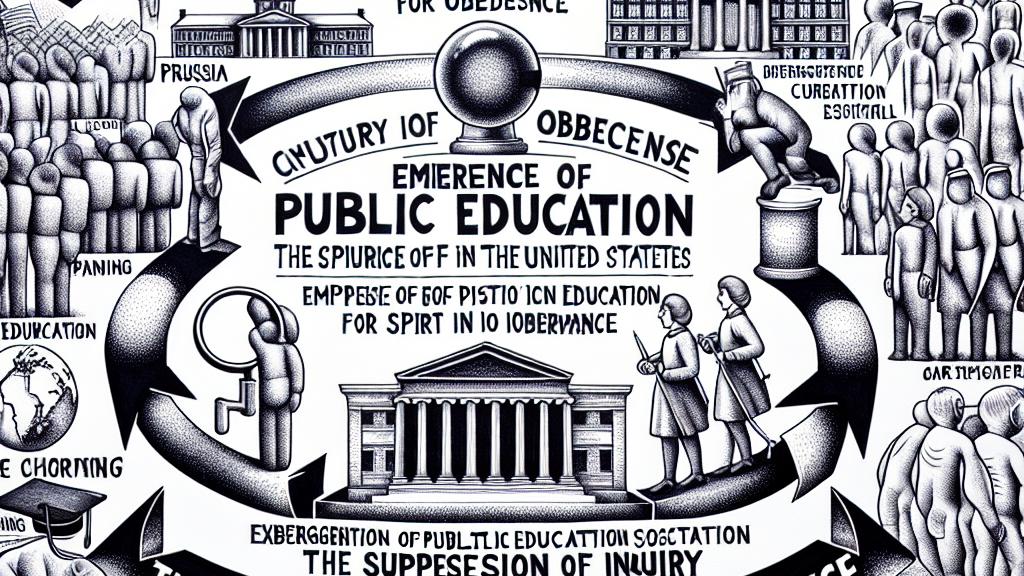Rethinking Mass Education and Its Impact on Critical Thinking
Overview
- Investigates the surprising origins of mass education, often rooted in control instead of true empowerment.
- Reveals that many educational systems prioritize conformity, undermining critical thought and independent learning.
- Analyzes modern implications of these educational practices, particularly in shaping political discourse and social awareness.

Unpacking the Historical Context of Mass Education
When we explore the history of mass education, we uncover a narrative that is both compelling and unsettling. Rather than being merely a vehicle for enlightenment, mass education has often served the interests of those in power. Take Prussia, for instance: after experiencing significant peasant revolts, it established a system of compulsory schooling aimed at instilling obedience in the populace. This approach was not unique. Similarly, in the United States, the introduction of public education closely followed periods of unrest, reflecting the belief that education could shape compliant citizens. Thus, schools became arenas where conformity was cultivated, while the spirit of inquiry was dampened—this intentional design raises crucial questions about the foundational purposes of education itself.
The Detrimental Impact on Critical Thinking Skills
While education promises to foster critical thinking skills, the reality often falls short of this ideal. Research by Agustina S. Paglayan illustrates that modern educational practices frequently lean toward rote memorization, sidelining the cultivation of independent thought. Imagine a classroom where students are rewarded for recalling facts, but penalized for questioning conventional wisdom. This atmosphere stifles creativity and discourages genuine exploration. For example, instead of encouraging students to analyze complex issues like justice or freedom, many curriculums focus on obedience, leading to a generation ill-prepared to engage thoughtfully with societal challenges. Educational theorists such as John Dewey have long argued that true education should develop reflective thinkers—yet, the current approach still prioritizes compliance over curiosity, inadvertently weakening the democratic competencies essential for informed citizenship.
Modern Implications and the Path Forward for Education
The effects of this historically rooted system are glaringly evident in our current societal landscape. Controversies surrounding 'patriotic education' and critical race theory showcase the ongoing battle between tradition and progress. For instance, legislative measures aimed at banning discussions of systemic racism echo past attempts to maintain social order, revealing a deep-seated fear of dissent within educational frameworks. This presents a pivotal question: how can we rejuvenate education to prioritize independent thought and critical engagement? Moving forward, it is imperative that educators and policymakers champion inquiry-based learning environments that empower students to question, analyze, and innovate. In fostering spaces where diverse perspectives are not only welcomed but encouraged, we can redefine the true purpose of education, transforming it from a tool of indoctrination into a catalyst for meaningful social change.

Loading...